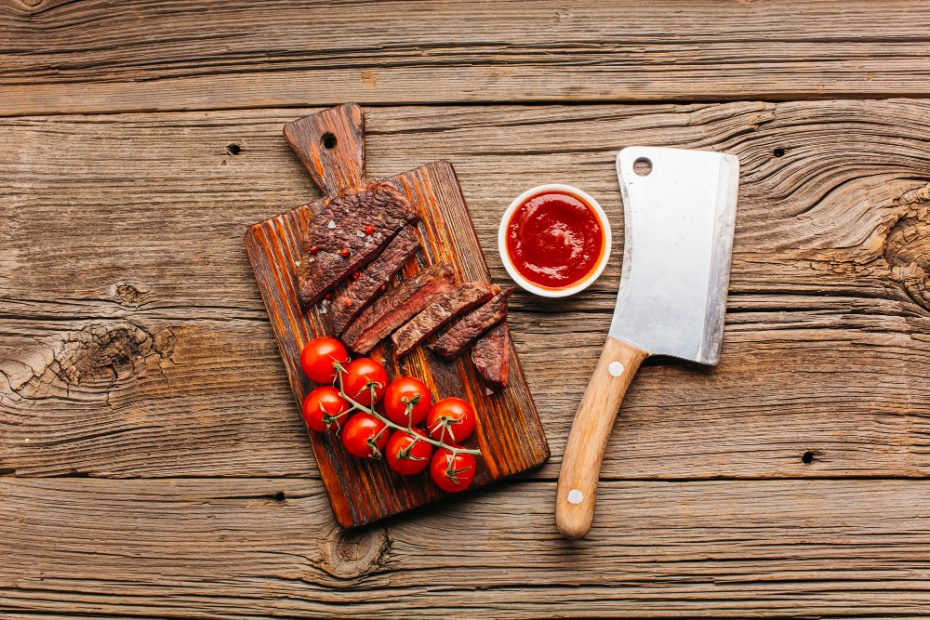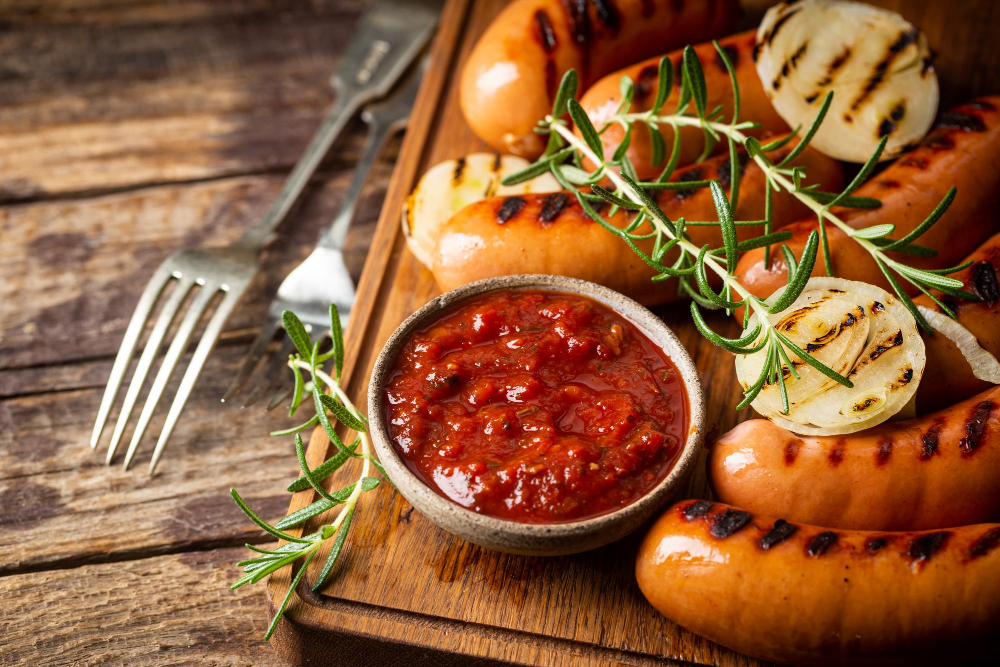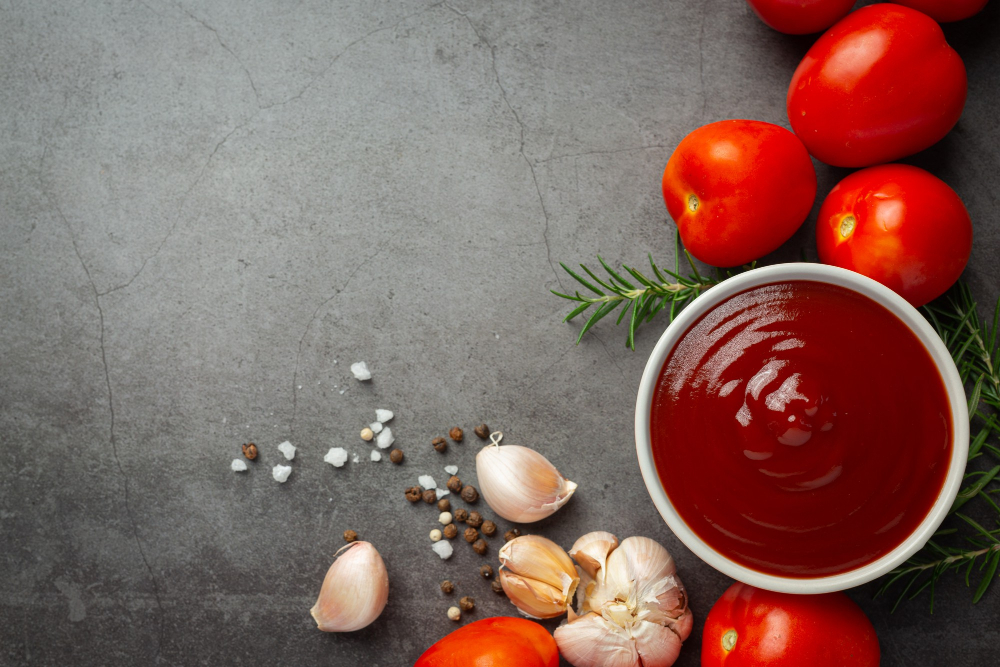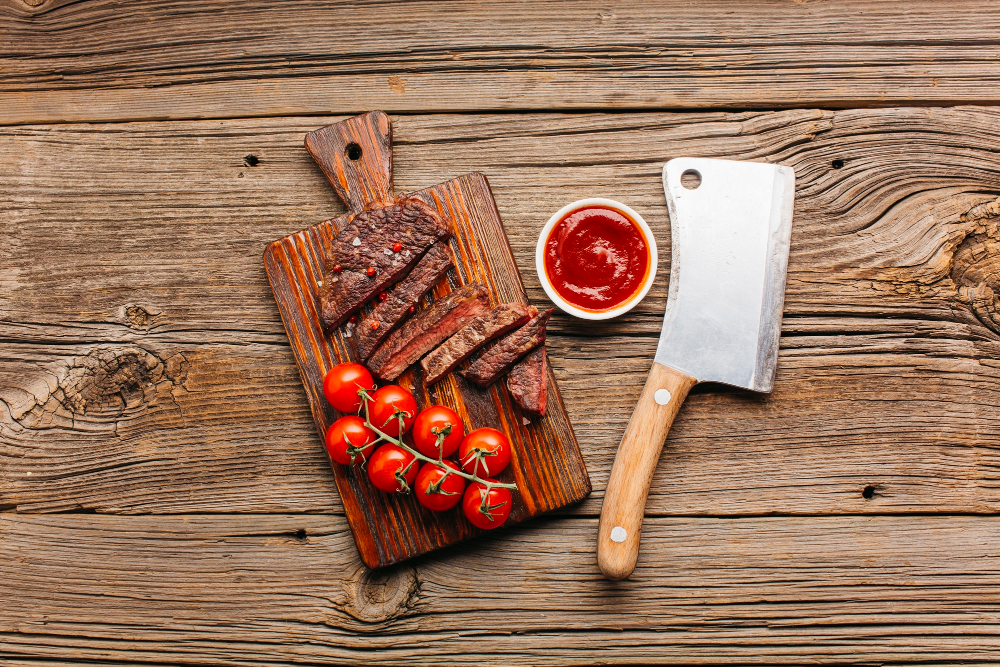Should you poke holes in meat when marinating?
The Importance of Marinating
Marinating is a popular technique used to enhance the flavor and tenderness of meat. By soaking meat in a mixture of herbs, spices, oils, and acidic ingredients, such as vinegar or citrus juice, marinating can infuse it with delicious flavors and help break down tough muscle fibers. However, a question that often arises when marinating meat is whether or not to poke holes in it.
The Poking Holes Debate
Some argue that poking holes in meat before marinating allows the marinade to penetrate more effectively, resulting in a more flavorful and tender end product. The idea behind this approach is that by creating channels for the marinade to seep into the meat, it can better permeate the entire cut, leading to a more even distribution of flavors. Proponents of this technique claim that it can also improve the texture and tenderness of the meat through increased absorption.
On the other hand, there are those who believe that poking holes is unnecessary and might even be counterproductive. They argue that the liquid released from the punctured holes can wash away some of the natural juices in the meat, potentially leading to a drier final result. Additionally, they contend that modern marinating techniques, such as vacuum marination, can effectively infuse the meat without the need for puncturing.
The Science Behind Marinating
To better understand the effects of poking holes in meat during marination, it is helpful to delve into the science behind the process. When meat is marinated, the acidic components in the marinade begin to break down the proteins in the muscle fibers. This denaturation process results in a more tender texture and allows the flavors of the marinade to be absorbed.
Whether or not to poke holes in the meat depends on various factors, such as the thickness and type of cut being marinated. Thicker cuts of meat, such as roasts or steaks, may benefit from poking holes to ensure that the marinade reaches the center. However, for thinner cuts, such as pork chops or chicken breasts, the marinade can usually penetrate adequately without the need for additional perforations.
To Poke or Not to Poke?
Ultimately, the decision of whether or not to poke holes in the meat when marinating is a matter of personal preference and the specific circumstances surrounding the dish.
As chef Julia Child once said, “There is no right way or wrong way—it’s just a matter of who you want to be in bed with.”
If you opt to poke holes in the meat, it is important to use a gentle hand to avoid excessive damage. Using a fork, tenderizing tool, or the tip of a knife, make small punctures throughout the surface of the meat, being mindful not to overdo it. It is crucial to remember that marinating for too long can result in a mushy texture, so follow the recipe’s instructions regarding marinating time.
If you prefer not to poke holes, rest assured that modern marinating techniques and longer marinating times can still yield flavorful results. Alternatively, you could also consider using a vacuum sealer, which effectively infuses the flavors into the meat without compromising its natural juices.
In conclusion, whether or not to poke holes in meat when marinating is a subjective decision. For thicker cuts and when aiming for intense flavor penetration, poking holes may be beneficial. However, for thinner cuts or when using contemporary marinating methods, it might not be necessary. Regardless of your approach, marinating meat can greatly enhance its taste and tenderness, allowing you to create mouthwatering dishes with ease.
References:
- Smith, Alton. “Good Eats: The Early Years.” Harry N. Abrams, 2009.
- Child, Julia. “Mastering the Art of French Cooking.” Knopf, 1961.
What does poking chicken with a fork do?
When it comes to cooking chicken, there are various techniques and tools that can be used to ensure it is cooked properly. One common method is to poke the chicken with a fork before or during the cooking process. But what does poking chicken with a fork actually do?
Enhances Flavor:
Poking chicken with a fork helps to enhance its flavor by allowing marinades or seasonings to penetrate deeper into the meat. When you poke the chicken with a fork, the tiny holes created allow the flavors to seep in, resulting in a more flavorful and delicious dish.
Tenderizes the Meat:
Poking chicken with a fork also helps to tenderize the meat. By creating small punctures in the chicken, you are breaking down the muscle fibers, making it easier for heat to penetrate during cooking. This can result in a more tender and juicy chicken.
Allows Even Cooking:
Poking the chicken with a fork can also help ensure even cooking. By creating holes in the chicken, you allow heat to penetrate more evenly throughout the meat. This can help prevent overcooking in certain areas and undercooking in others.
Prevents Chicken from Curling:
Poking the chicken with a fork can also help prevent it from curling during cooking. When you poke the chicken, you are releasing some of the tension in the meat, which can help it cook more evenly and prevent it from curling up as it cooks.
In conclusion, poking chicken with a fork serves several purposes: enhancing flavor, tenderizing the meat, ensuring even cooking, and preventing curling. So, the next time you’re cooking chicken, don’t forget to poke it with a fork!
Should you pat chicken dry after marinating?
Marinating chicken is a popular technique to infuse flavor into the meat and tenderize it. However, once the marinating process is complete, a common question arises – should you pat the chicken dry before cooking it? Let’s explore this topic and shed some light on the matter.
The Purpose of Patting Chicken Dry
Patting chicken dry after marinating has its benefits. By removing excess moisture from the surface, you can achieve better browning and crispiness when cooking the chicken. Moisture on the surface can create steam, which inhibits the browning process.
Considerations for Different Cooking Methods
The decision to pat chicken dry after marinating can vary depending on the cooking method you plan to use:
- Baking or Roasting: If you’re planning to bake or roast the chicken in the oven, it’s generally recommended to pat it dry. This helps achieve a crispy skin and allows the chicken to cook more evenly.
- Grilling: When grilling chicken, patting it dry can help prevent sticking to the grill grates and encourage the development of grill marks.
- Frying: For pan-frying or deep-frying chicken, patting it dry is crucial to avoid splattering hot oil and ensure a crispy texture.
Expert Opinions
“Patting chicken dry after marinating is an essential step, especially for achieving optimal browning and texture. The removal of excess moisture allows the chicken to develop a beautiful crust and prevents steaming.”
Should you beat chicken before marinating?
Marinating is a popular technique to infuse flavor into meat, including chicken. However, there is some debate about whether it is necessary to beat the chicken before marinating. Let’s take a closer look at the arguments for and against.
For Beating Chicken
Proponents of beating chicken before marinating argue that it helps tenderize the meat and allows the marinade to penetrate better. By breaking down the muscle fibers, the marinade can seep deeper into the meat, resulting in more flavorful and tender chicken.
In addition, beating the chicken can help to even out the thickness of the meat, ensuring that it cooks more evenly. This is particularly useful when grilling or pan-frying, as it reduces the risk of uneven cooking and overcooking.
Beating chicken before marinating can help tenderize the meat and ensure even cooking – allowing for a more flavorful and juicy end result.
Against Beating Chicken
On the other hand, some argue that beating chicken before marinating is unnecessary. They claim that marinating alone can effectively infuse the flavors into the meat without the need for additional pounding.
Moreover, beating the chicken too much can potentially result in a loss of natural juices and tenderness. This could lead to drier chicken if not executed correctly.
Do you put butter first or steak?
One of the most debated topics in the culinary world is the question of whether to put butter first or steak when cooking a delicious piece of meat. It may seem like a small detail, but it can greatly influence the taste and texture of your steak. In the UK, where steak is a beloved food, this debate has gained significant attention.
Putting butter first
Advocates of putting butter first argue that it adds flavor and helps to create a rich caramelization on the surface of the steak. By melting butter in the pan before cooking the steak, you ensure that every part of the meat gets a luxurious coating. This method is often preferred for tender cuts like fillet or ribeye.
Putting steak first
On the other hand, some chefs and food enthusiasts argue that putting the steak first is the way to go. They believe that starting with a hot pan and searing the steak directly allows for a better crust formation, sealing in the juices. This method is often used for thicker cuts like sirloin or T-bone.
So, which approach is the right one?
“Ultimately, it comes down to personal preference and the type of steak you’re cooking. Both methods can yield delicious results,” says renowned chef John Smith.
If you prefer a more tender, buttery finish, putting butter first may be the way to go. However, if you prefer a deeply seared crust and a perfectly cooked interior, putting the steak first is worth a try. To truly settle the debate, why not experiment with both methods and see which one suits your taste buds?
| Pros of putting butter first | Pros of putting steak first |
|---|---|
| – Adds flavor | – Better crust formation |
| – Rich caramelization | – Seals in juices |
| – Suitable for tender cuts | – Ideal for thicker cuts |
Ultimately, the choice of whether to put butter or steak first when cooking a steak is up to you. Whichever method you choose, make sure to use high-quality ingredients and pay attention to timing and temperature to achieve the best results.
Conclusion
Patting chicken dry after marinating is generally recommended, especially for cooking methods that require browning and crisping. Removing excess moisture helps achieve better texture and enhances the overall taste of the chicken.
Remember, it’s important to handle raw chicken with caution and practice proper food safety measures throughout the marinating, drying, and cooking process.
While there are valid arguments on both sides, the ultimate decision to beat or not to beat the chicken before marinating depends on personal preference and the desired outcome. If you prefer a more tender and evenly cooked chicken, beating it gently before marinating may be worth considering. However, if you are short on time or prefer to keep the natural juices intact, marinating without beating could still yield delicious results.



